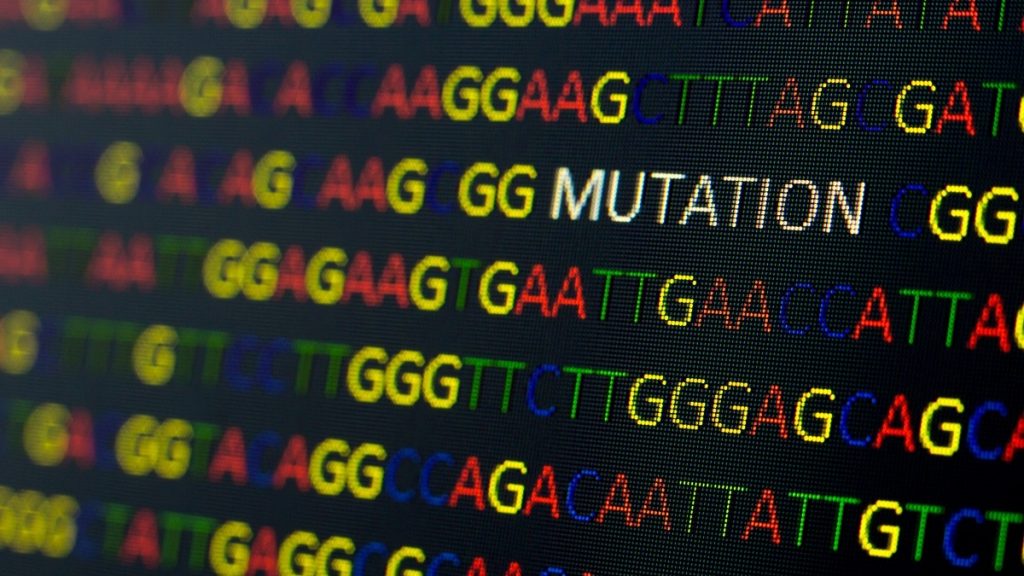Huntsville, Ala. – HudsonAlpha Institute for Biotechnology, a genomics and genetics research institute in Huntsville, Ala., will use a new genomic sequencing system to conduct additional diagnostic testing on children with rare undiagnosed disease in North Alabama.
More than 500 families are enrolled in HudsonAlpha’s NIH-funded Clinical Sequencing Exploratory Research (CSER) project, which seeks to better understand the genetic basis of intellectual and developmental disabilities in children and provide diagnostic information to affected families. Whole genome sequencing, using what’s known as “short read technology,” already has yielded diagnoses for more than 160 families.
Now, lead investigator Greg Cooper, PhD, will apply a new tool developed by Pacific Biosciences of California, Inc. The Sequel® System’s long-read sequencing technology could produce answers for many cases in which the genetic variations are larger and more complex than the short-read technology can resolve.
“By applying whole genome PacBio® Sequencing in this study we hope to more sensitively identify all sizes of genetic variants, thereby increasing our solve rate for previously undiagnosed children,” said Dr. Cooper. “In many cases, an accurate clinical diagnosis can improve our ability to manage the child’s condition. We also anticipate that we will make novel discoveries through this work that may benefit many families beyond those directly tested here.”
Families in the study who have already received diagnoses say those answers are meaningful and often lead to different therapies and treatments for their children.
Miranda Ainsworth’s daughter Anna Brooke was misdiagnosed multiple times in the eight years she spent seeing different specialists – before enrolling in CSER and receiving a diagnosis of Cornelia de Lange Syndrome.
“We were just thrilled to have an answer,” said Miranda. “We can deal with anything, but to get an answer that puts it all together, this is what we needed. We needed that for our family.”
Scientists in the HudsonAlpha Genome Sequencing Center (HGSC) have been using PacBio technology for their agricultural biology work in recent years.
“PacBio Sequencing has made it possible for us to generate high-quality reference genomes for most plants, and we now want to apply the benefits of this technology in the human disease space,” said Jeremy Schmutz, co-director of the HGSC and another HudsonAlpha faculty investigator. “With further scale increases and cost decreases in the future, true individual de novo genome sequencing may become the tool of choice for addressing difficult medical cases.”
“We believe projects like HudsonAlpha’s CSER program to help solve undiagnosed genetic disease in children are among the most important and rewarding uses for our technology. We are delighted to see that one of our most successful customers working in the plant sciences has decided to apply our long-read technology to their research in patient populations. We look forward to seeing how PacBio sequencing can both improve their clinical sequencing success rate as well as support new discoveries,” said Kevin Corcoran, Senior Vice President for Market Development at Pacific Biosciences.
About HudsonAlpha: HudsonAlpha Institute for Biotechnology is a nonprofit institute dedicated to developing and applying scientific advances to health, agriculture, learning, and commercialization. Opened in 2008, HudsonAlpha’s vision is to leverage the synergy between discovery, education, medicine, and economic development in genomic sciences to improve the human condition around the globe. The HudsonAlpha biotechnology campus consists of 152 acres nestled within Cummings Research Park, the nation’s second largest research park. The state-of-the-art facilities co-locate nonprofit scientific researchers with entrepreneurs and educators. HudsonAlpha has become a national and international leader in genetics and genomics research and biotech education and includes more than 30 diverse biotech companies on campus. To learn more about HudsonAlpha, visit hudsonalpha.org.
About Pacific Biosciences: Pacific Biosciences of California, Inc. (NASDAQ:PACB) offers sequencing systems to help scientists resolve genetically complex problems. Based on its novel Single Molecule, Real-Time (SMRT®) technology, Pacific Biosciences’ products enable: de novo genome assembly to finish genomes in order to more fully identify, annotate and decipher genomic structures; full-length transcript analysis to improve annotations in reference genomes, characterize alternatively spliced isoforms in important gene families, and find novel genes; targeted sequencing to more comprehensively characterize genetic variations; and real-time kinetic information for epigenome characterization. Pacific Biosciences’ technology provides high accuracy, ultra-long reads, uniform coverage, and the ability to simultaneously detect epigenetic changes. PacBio® sequencing systems, including consumables and software, provide a simple, fast, end-to-end workflow for SMRT Sequencing. More information is available at www.pacb.com.
HudsonAlpha Media Contact:
Margetta Thomas
mthomas@hudsonalpha.org
256-327-0425


